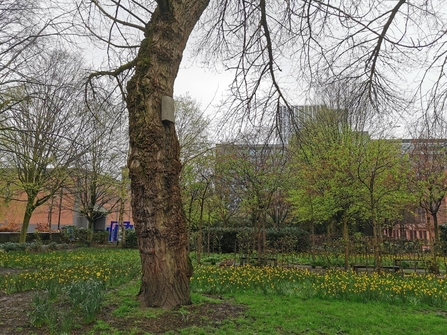In an effort to enhance biodiversity and support nature’s recovery, Lancashire, Manchester and Merseyside Wildlife Trust have been working with Manchester City Council to install nestboxes for both birds and bats in the bustling urban landscape of Deansgate.
The initiative not only aims to provide nesting options for various species but also aligns with the Manchester Biodiversity Strategy, focusing on target species crucial for nature’s recovery.
They have strategically placed a mix of wooden bird boxes with recycled plastic protective shells and eco-friendly bat boxes made of ecostyrocrete, a sustainable blend of concrete and recycled polystyrene, around Deansgate.
These boxes can be found in key locations, such as St Johns Park, Parsonage Gardens, and soon along the Rochdale Canal, creating ideal habitats for species like common pipistrelle and Daubenton’s bats as well as house sparrows and other birds.

The success of this project is not just limited to environmental benefits. Community groups, such as Castlefield Clean and Green and Plant Cooperative, have actively participated in enhancing greenspaces throughout the city. These collective efforts strive to create a better city centre, promoting both the well-being of nature and the community. Numerous studies have shown that greenspaces and wildlife contribute positively to mental and physical health.







